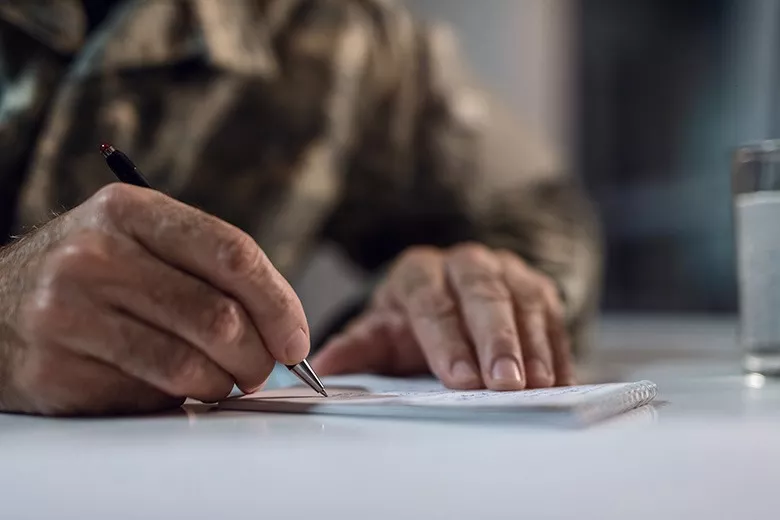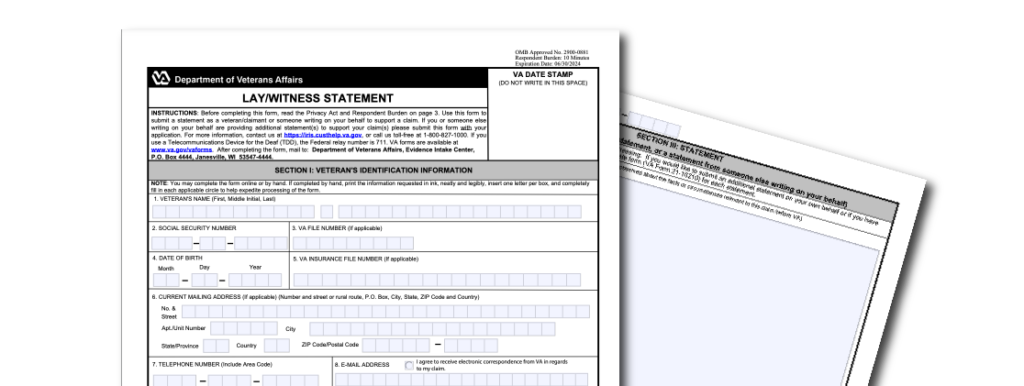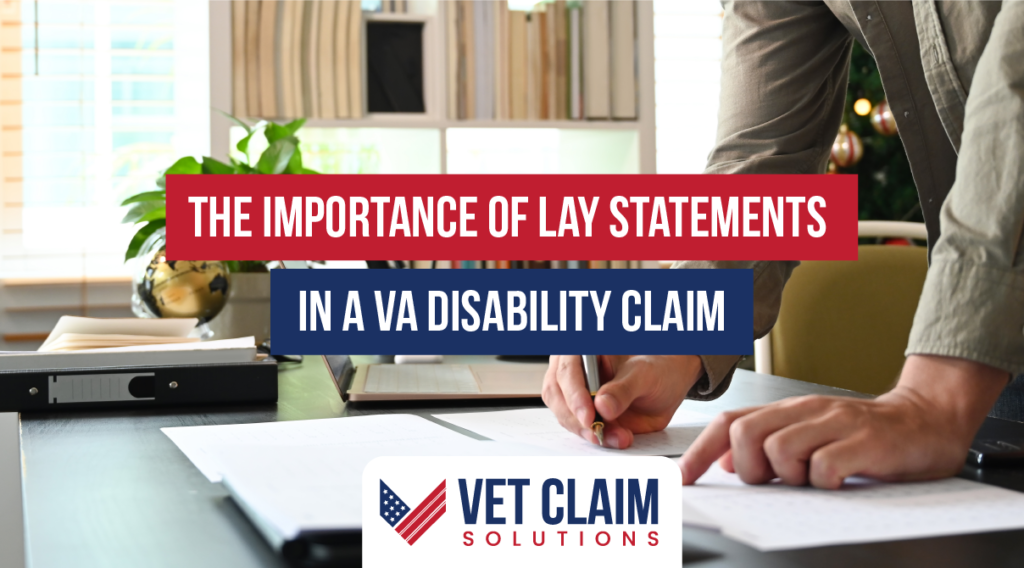A VA disability claim frequently requires proof of a condition or sickness that can be linked to military service. Records of service rendered or received, medical files, and physician statements are all evidence that may be considered.
A lay or friend statement is among the most effective forms of proof, along with official records. Persons who knew a veteran earlier, while, or after service may be able to provide light on the origins, progression, and day-to-day impacts of the veteran’s condition by providing statements about their interactions with the veteran.

What Actually is a Lay Statement?
A lay statement is a formal statement that is offered by a veteran or anyone related to a veteran in order to assist in establishing the implications of injuries that are tied to military service. In many cases, these declarations elaborate on the veteran’s service-related impairment’s impact on their life.
The purpose of providing this data is to create a representation of your everyday life. Evidence like a nexus letter produced by a medical professional is not the same as this type of proof.
How Can You Benefit From Using Lay Statements for Your Veterans Affairs Claim?
Your application for veterans disability benefits will need to include several different pieces of medical evidence in order to be considered complete. You will be evaluated by VA doctors during a C&P examination that you will have to attend.
Additionally, you will be required to submit medical treatment files from both military and civilian physicians who have provided care to you. In addition, the VA will use a questionnaire regarding disability benefits to collect information about your disability from your treating physicians.
The review board will have a wealth of medical evidence at their disposal thanks to all of this data. Your medical evidence is strengthened by the use of lay statements. These statements provide a different perspective on the situation by describing what life is like for the veteran living with this disability. They are documented by a member of the general public rather than a trained medical professional. What do they experience on a daily basis? How have they deteriorated over time? What are some of the restrictions that a veteran must deal with? All of these questions are best answered by individuals who spend significant amounts of time with veterans on a daily basis.
Not only are lay statements essential for your application for compensation claims, but they’re also important for the process of appealing the decision. Consider the possibility that your claim for disability compensation will be turned down or that you will disagree with the rating level. If this is the case, you have the option of providing the Board of Veterans’ Appeals (BVA) with lay statements that provide additional information to support the request you made.
Different Types of lay statements

Lay statements are also known as supportive statements, statements in support of a claim, and “buddy statements” by the VA or other veteran service groups. All lay statements, by whatever name they go, accomplish the same goals and operate in the same ways. The following examples of lay remarks may be used to bolster your VA application:

Lay Statements from Family
Veterans’ loved ones can testify to the lasting psychological and behavioral changes brought on by their service since they know their loved ones better than anyone else. Spouse and ex-spouse testimonies might be helpful in proving the extent to which a veteran’s health issues stem from their military service.
Sibling and parental statements are especially powerful since they come from those who have known the veteran the longest and who may be most comfortable discussing the impact of military service on the veteran’s life.

Lay statements from friends
In the same way that statements from a veteran’s family can shed light on how an illness caused or exacerbated by military service has affected the veteran’s physical or mental health, statements from close friends can do the same.
Keep in mind that the statement should address the veteran’s quality of life in all of its phases: before, during, and then after military duty. A person’s social circle might shed light on the factors that contributed to a change in their state of mind.

Lay Statements by employers, even in safe workplaces
A statement from a former or current employer might be useful in proving a veteran’s efficiency and dependability on the job, albeit this varies by the kind of claim being submitted. If a veteran is trying to get his pre-military ailment recognized as service-connected, he might wish to get a letter of recommendation from his former boss.
An employer can provide a lay statement that can help a veteran get a higher rating and VA unemployment benefits by explaining how the veteran’s service-connected injury has interfered with his or her ability to do the job.
Veterans can also benefit from employers’ statements about where they have worked since leaving the military, even if the veteran was terminated or otherwise disciplined for poor performance related to limitations incurred as a result of their military service.
This emphasizes the importance of VA disability benefits, which are meant to make up for the things a veteran can’t do because of injuries sustained in service.
How to Submit Lay Statement?

Veterans can submit lay statement in support of their disability claim by filling out VA Form 21-10210, often referred to as a Statement in Support of Claim.
This VA form is used to submit information on an injury that occurred while the veteran was serving in the military or to give an update regarding the current severity of a service-connected condition. Consider the following information when submitting a lay statement:
- Start by saying, “I [your complete name] hereby affirm that…”
- Specify the time, place, and particular date.
- Don’t use sentences like “in our opinion”
Conclusion
Veterans with service-connected disabilities can apply to the Veterans Administration for monthly disability benefits (VA). However, even if your handicap is obvious, the VA may still reject your application for assistance. Submission of supporting statements from friends or acquaintances can help your case. Lay statements are discussed in detail above as they pertain to the VA disability claim process.


